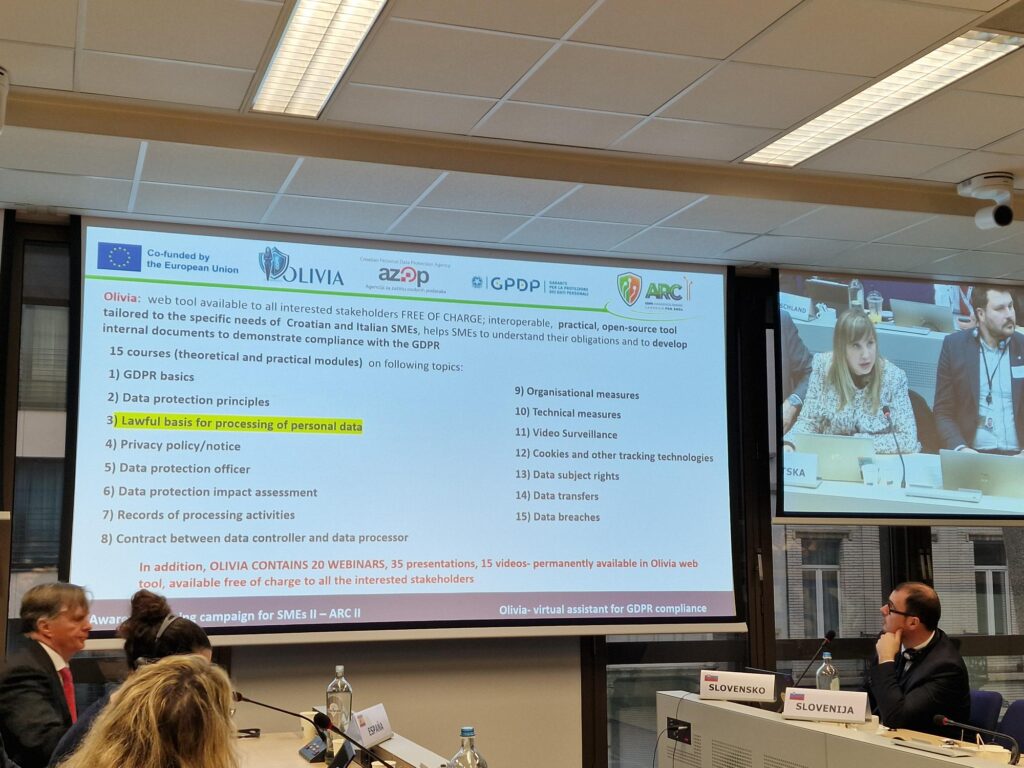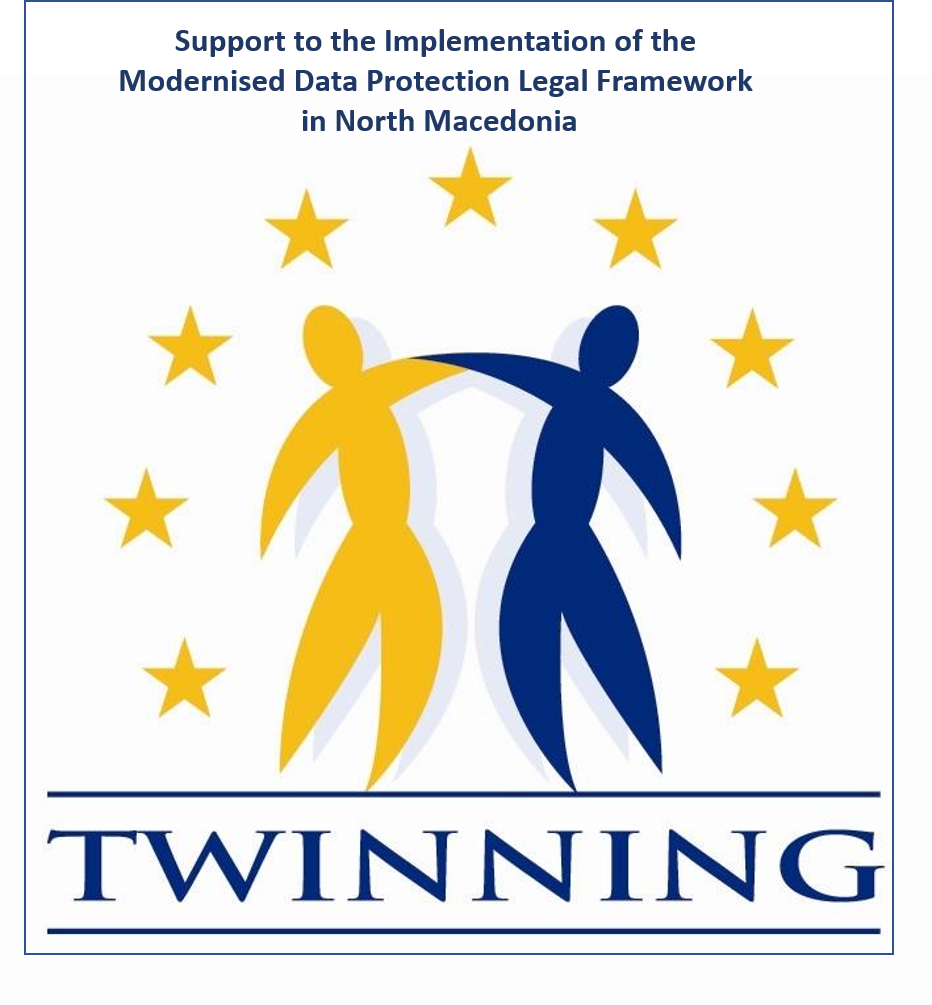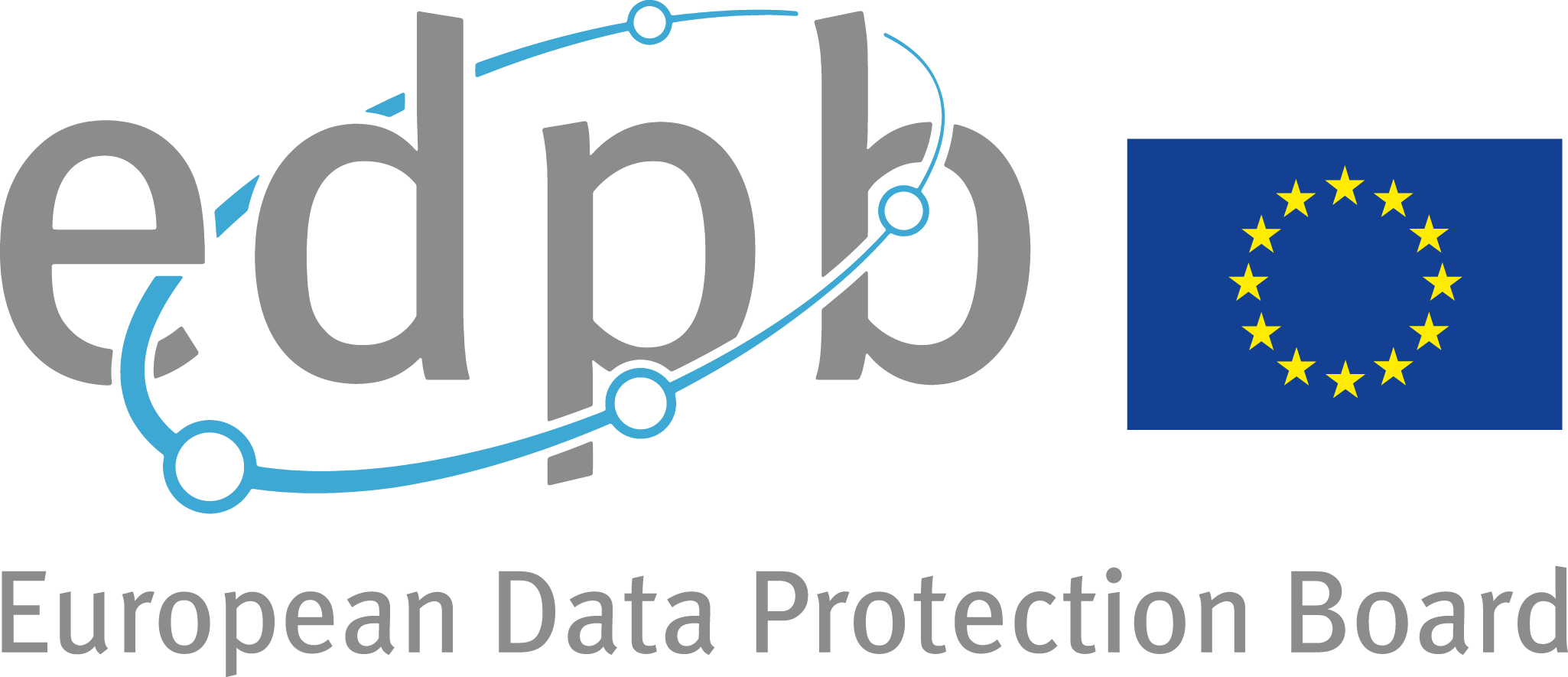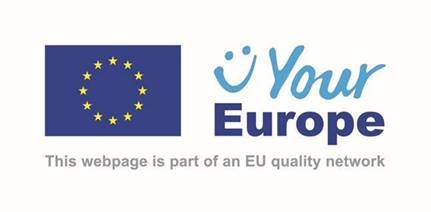
Brussels, 11 February – At the plenary meeting of the European Data Protection Board (EDPB), attended by the EDPB Vice-Chair and Director of the Croatian Personal Data Protection Agency, Zdravko Vukić, along with colleagues, the EDPB adopted a statement on verifying users’ age and decided to establish an AI enforcement task force. In addition, the Board adopted recommendations regarding the World Anti-Doping Code of the World Anti-Doping Agency (WADA).
Anamarija Mladinić, Head of Sector for EU, International Cooperation and Legal Affairs presented to EDPB members an innovative web tool, Olivia, developed in cooperation with partners within the ARC II project to support entrepreneurs in aligning with the General Data Protection Regulation: https://olivia-gdpr-arc.eu/hr.
In its statement on age verification, the European Data Protection Board outlines ten principles for consistent processing of personal data when establishing an individual’s age or age range. The aim is to ensure a harmonised European approach to verifying users’ age, protecting minors while respecting data protection principles.
EDPB Chair Anu Talus stated: “Ensuring age verification is crucial to guarantee that children do not access content inappropriate for their age. At the same time, the age verification method must be as non-intrusive as possible, and children’s personal data must be protected. The principles proposed by the EDPB will help industry assess individuals’ age in a manner that is consistent with data protection principles while protecting children’s welfare.”
The EDPB is also cooperating with the European Commission on age verification in the context of the Digital Services Act Task Force.
During the plenary session, the Board also decided to expand the scope of the ChatGPT task force, which will now become the AI enforcement task force. Additionally, EDPB members highlighted the need for coordination among data protection authorities regarding urgent and sensitive matters and will establish a rapid response team for this purpose.
EDPB Chair Anu Talus stated: “The General Data Protection Regulation is a legal framework that promotes responsible innovation. It is designed to uphold high data protection standards while fully harnessing the potential of innovations such as artificial intelligence, to the benefit of our economy. The EDPB’s AI enforcement task force and the future rapid response team will play a key role in maintaining that balance, coordinating data protection authorities, and supporting them in navigating complex AI-related situations while respecting strong data protection principles.”
At the plenary session, the European Data Protection Board also adopted recommendations on the World Anti-Doping Code of the World Anti-Doping Agency. When processing personal data for anti-doping purposes, it is crucial to respect and protect athletes’ personal data, which in many cases includes the processing of sensitive personal data, such as health data derived from biological samples.
The EDPB’s recommendations address key data protection principles, such as the need for an appropriate legal basis for processing personal data and purpose limitation. The recommendations also stress that individuals must be fully informed about the processing of their personal data and must be able to effectively exercise their rights.





